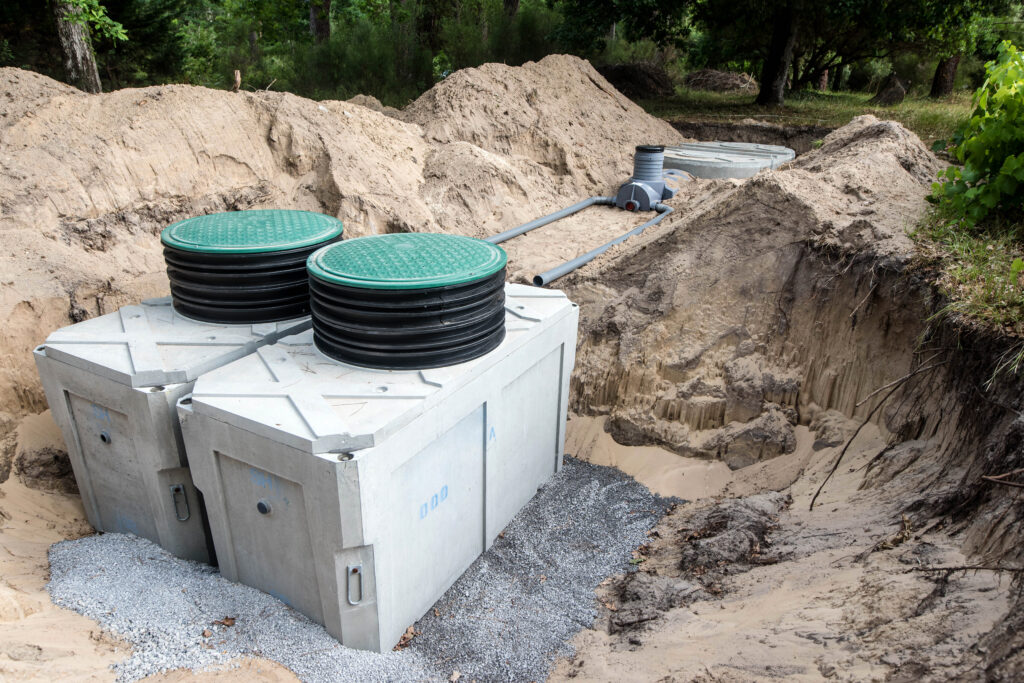In today’s world, where water management is increasingly crucial, domestic wastewater treatment plants are often highlighted as an essential solution for households mindful of their environmental footprint and water quality. These systems are designed to treat the wastewater produced by a household—shower runoff, toilet waste, and laundry water—before it’s released back into the environment, turning polluted water into clear, environmentally safe water.

Understanding domestic wastewater treatment
A domestic wastewater treatment plant is a system that processes the wastewater generated by household activities to meet strict environmental standards before it is discharged back into nature. This includes water from showers, toilets, and washing machines, ensuring it’s clean and safe.
The reasons for installing a wastewater treatment system
Installing a wastewater treatment system serves several purposes. Primarily, it plays a crucial role in environmental protection by preventing the discharge of untreated wastewater. Furthermore, in certain areas, installing such a system is a legal requirement for new builds or significant renovations. It also contributes to water conservation efforts by enabling the recycling and reuse of water for non-potable purposes, like garden irrigation.
How much does it cost?
The cost of a domestic wastewater treatment system varies significantly depending on the household size, the type of system selected, and the complexity of the installation. Prices can start from a few thousand euros for smaller systems and can exceed fifteen thousand euros for more elaborate setups and larger homes.
Installation process
The installation of a domestic wastewater treatment plant must be carried out by certified professionals. The process includes a feasibility study, selection of the most suitable system for the residence and needs, and then the physical installation, which involves excavation, setting up the system, and connecting it to the home’s existing plumbing.
Legal requirements in Belgium
In Belgium, the legislation regarding domestic wastewater treatment varies by region (Wallonia, Flanders, Brussels-Capital). Generally, homes located outside collective sanitation areas are required to install individual treatment systems. It’s important to consult local regulations to understand specific obligations and potential incentives, such as subsidies, available for installing these systems.
Maintaining your system
Regular maintenance is crucial to ensure the effective operation of your wastewater treatment system. This includes periodic checks and cleaning to prevent blockages and malfunctions, ensuring the system continues to operate efficiently and effectively.
Choosing the right system
Selecting the appropriate wastewater treatment system involves considering several factors, including environmental impact, capacity, and cost. Consulting with a professional can help determine the best system for your specific situation, taking into account the size of your household and local environmental regulations.
Domestic wastewater treatment plants offer a practical solution for managing household wastewater responsibly and sustainably. By understanding the basics of how these systems work, their costs, and the legal landscape, homeowners can make informed decisions about installing and maintaining a system that benefits both their household and the environment.

 Open Immovlan
Open Immovlan